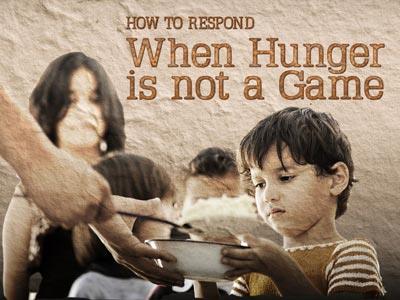-
"bread Beyond Bread"
Contributed by Ken Sauer on Jul 22, 2021 (message contributor)
Summary: A sermon about making the decision to believe.
“Bread Beyond Bread”
John 6:24-35
I have read that in 19th Century China, and perhaps all over Asia, there was a name given for people who came to church for one reason and one reason only—because they were hungry for material food.
They converted to Christianity, were baptized, joined the Church, and were active members as long as their physical needs were met through the generosity of the congregation.
But once their socio-economic situations improved and they and their families no longer needed rice, they drifted away from the Church.
And so, they were called “rice Christians.”
That’s also kind of similar to what happened in East Germany and Romania just before the liberation of Eastern Europe—when the pastors were speaking out against Communist regimes.
The people came to cheer the church on, and to join the congregation.
But after the liberation from the heel of the Soviet boot and local dictators, the crowds went home and the churches started to look as bedraggled and abandoned as they had before.
The crowd in our Gospel Lesson for this morning are, evidently, the same group who had been fed the day before when Jesus miraculously fed 5,000 people from five loaves of bread and two fish.
David preached about this last Sunday.
Apparently, they had eaten their fill and then took a good old snooze.
The next morning, when they woke up, they realized that Jesus and His disciples had quietly left town.
So, “they got into the boats and came to Capernaum looking for Jesus.”
When they finally found Jesus, He said to them, “Very truly I tell you, you are looking for me, not because the signs I performed but because you ate the loaves and had your fill.”
It seems that the crowd was hungry for breakfast.
They were chasing after Jesus, not because they were interested in having a relationship with Jesus; they merely wanted another free meal.
They were after Jesus because they want to fill their tummies, not so they can have the fulfillment of their lives.
And so, we see that what happened in 19th Century China, in East Germany and Romania is nothing new.
It’s as old as the Gospel itself.
As we look at our community and our world today we see that people are either desperate for food…hungry each night and hoping for relief, or they have all the food that they can eat with leftovers, and yet their lives are unfilled, or unfulfilled.
Jesus says to the crowd of people chasing Him across the sea so many years ago and Jesus says to us: “Do not work for food that spoils, but for food that endures to eternal life which the Son of Man will give you.”
At our house, we sometimes play a board game called “The Game of Life.”
Most of you have probably played it as well.
But the game isn’t about life, really…
…it’s more about life as we are told it ought to be.
In the game, you have choices along the way: go to college or not, buy stocks, have a career (with the highest salary being the best).
There are pitfalls and shortcuts to retirement which is the finish line.
But the goal isn’t to finish first.
Rather, the goal is to finish with the most.
Whoever has the biggest stack of cash at the end is the winner.
But after someone wins the game, the game is put away.
All the money that was made disappears until the next game when the pursuit of “bread” in the form of money is repeated.
One thing the game doesn’t count as part of life is death.
So, the real end in “The Game of Life,” if the truth be told, is always a tie.
The proposed “purpose” in life to gather a large stack of money turns out to be an illusion.
Here in Suburban America, you’d think that with so many people “winning” the world’s game of life we would be a culture that is more satisfied than most, since—as a whole—we have more than most.
And yet, I see so many unhappy people.
I see people who are angry and stressed out.
I see kids who are confused and can’t figure out why they are so unhappy.
So, in order to try and fix themselves, they do all sorts of things that make them even more unhappy.
Again, Jesus says, “Do not work for food that spoils, but for food that endures to eternal life.”
The word translated as “endures” is a word is used throughout the Gospel of John to describe the relationship between Jesus and the person who believes.
In the end, this enduring means nothing less than the Father and the Son dwelling in believers through the presence of the Holy Spirit.

 Sermon Central
Sermon Central



